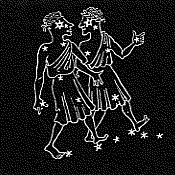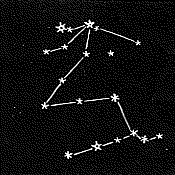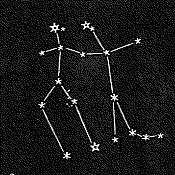
Mythological

Geometric

Graphic
Plato developed a comprehensive theory of knowledge that is subtle, flexible and surprisingly anti-dogmatic, at least according to the findings of the British philosopher Gilbert Ryle. This theory can be useful as a guide to anyone who is trying to gain perspective on today's epistemological and ideological debates. Wittgenstein's quote of the comedian Nestroy, "Progress is Always Smaller than you Think" is widely applicable, but especially apt when applied to epistemological theorizing. This workshop on Plato's theory of knowledge aims to acquaint, even familiarize, its members with four of his dialogues, namely the Theaetetus, Timaeus, Phaedrus, and Gorgias, where the author attends to the perennial question "What is Knowledge" in relation to the five major topics of language, imagination, truth as memory, love, and phantasy as self-serving deception.
These four dialogues will be first read in their entirety, and key passages
collaboratively selected. The philosophically most challenging sections are
to be looked at repeatedly in two, sometimes three, contemporary translations,
for the sake of critical comparisons. This approach will heighten the appreciation
of the things words can do, for good or ill. Focusing on the defining characteristics
of Plato's four distinct language modes, students will begin to aquire new skills
to deal with words and syntax in speech and written form. The attention on language
use is going to alternate with attention to the ironic-elenctic-dialectical
method of inquiry Plato adopted from his teacher Socrates. To find definitions
for foundational concepts, Plato relied on the Socratic method for the open-ended
philosophical investigations of his middle period. In our investigation, we
will take pains to see the advantages of an open-ended versus an ‘aprioristic'
mode of inquiry. Ethical questions will be given fair attention when they arise
in conjunction with the application of cognitive methods.
Class discussions will focus on questions generated by the study of the sections we selected from the four dialogues mentioned above. To keep track of responses to these very questions, students are encouraged to post comments regularly on the Student Forum. The student forum is a contemporary version of a public place where one goes to listen and also to talk, to express thoughts, exchange points of view, share insights, and start a conversation. In recent years, students in my seminars have found that writing web entries is an effective way to cultivate public speaking, writing, and study skills.- To look at existing entries on the Student Forum and post new ones, click on the link above.
Graphic illustrations of cognitive development:
| The Astronomical Twins |
||
 Mythological |
 Geometric |
 Graphic |
|
"The Tree of Knowledge" |